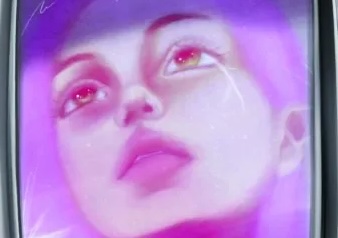Deep in space, August is awoken from a deep freeze for ten days every thousand years to carry out repairs on the spaceship on which she is the sole passenger. She is a shepherd, whose role is to carry an archive of humanity into the future. The urge to have a legacy speaks to fears for our planet, and a desire for a second chance. But who gets to design humanity’s plans for a reboot? Why has August been chosen? And what happens when she starts to feel that something isn’t quite right?
As August, Callie O’Brien starts full of a puppyish enthusiasm. She jokes with the computer checking for any signs of her physical or mental deterioration, and shares her excitement at her mission. But as the awakenings repeat, disillusionment seeps in. Sparked by the last few seconds of her dreams before coming round, and memories of the real person behind the computer voice’s, August starts to question what is being done to keep her compliant.
This is where the show starts to lose coherence. Partly this is down to the desire to address too many big issues in a 50 minute show. Is it about humanity’s legacy, or the harm we do each other, or what it’s like to realise that you don’t feel at home in your mind and body? None feel fully addressed. There are also problems in presentation, as increasingly August spends more time on the floor. With no raked seating and a low stage, for long periods I simply couldn’t see her from the third row, and that created an unfortunate disconnect with a wonderfully engaging performer.
The projections on screen, the parallel pillars of light that mark the bay August sleeps in, and the wonderful voice of the disembodied ship’s computer all contribute to a superb production design, but a little more focus on the storytelling could have elevated a fascinating concept.


Comments